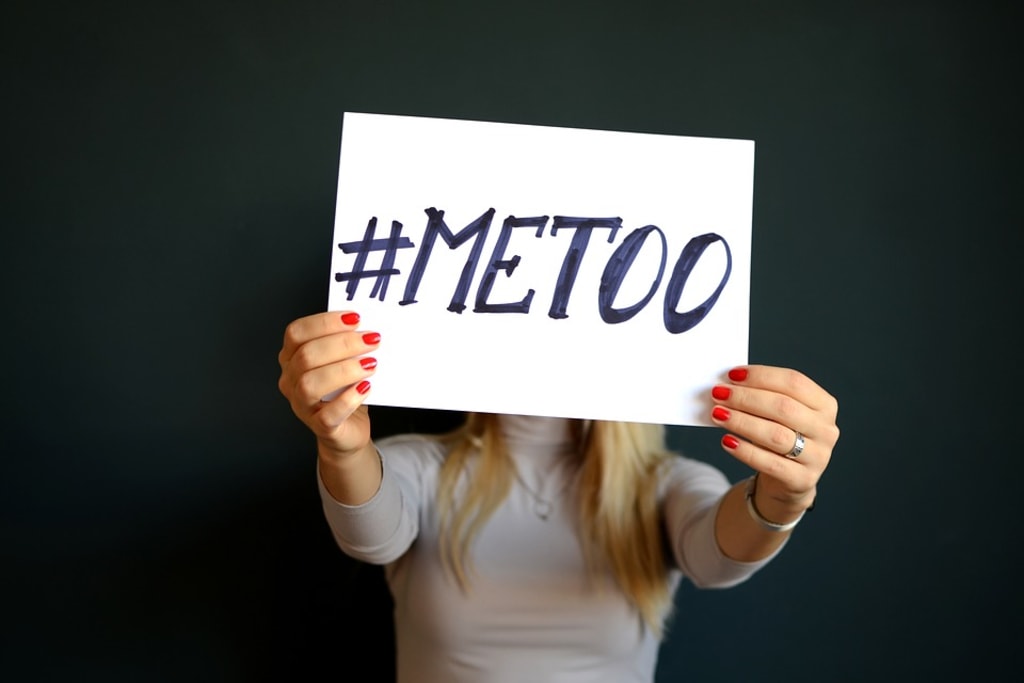#MeToo Is About You, Too
Consent is about what we want, as well as what we don't.

There were times in the past that I was sympathetic to the cries of “Not All Men,” but after a while I’d seen and heard enough to feel like it actually was All Men. It wasn’t in overt harassment, or openly sexist comments, but the accumulation of so many little things, the “microaggressions.” But after a while of putting up with the stereotypes, assumptions, and being treated as “less than,” they started to feel a lot like the regular old macroaggressions. It was everywhere. And worse, when confronted with information that suggested they—gasp!—might be in the wrong, the Not All Men were deeply offended and incredulous that we could possibly have interpreted their innocent behaviour as sexism. Just like the person who thinks it’s worse to be accused of racism that it is to actually be racist, we end up in a never-ending cycle of complaining and then having to deal with the tantrums and denial caused by the complaint. Well #MeToo has given us the opportunity to say “No More.”
Predictably, the #MeToo movement generated a lot of criticism and pushback, as well as the solidarity and vindication that we found in other people’s accounts of harassment. But why fight back against a movement aimed at calling out the “Bad Guys”? Well, this happens with just about every feminist or social justice campaign, so perhaps we need to broaden the question. Why are so many self-proclaimed “Good Guys” opposed to gender equality? In part, they’re concerned that making things equal means taking away some of their rights—which really shows their true colours, as that argument requires them to admit that women have fewer rights, and actually, they’re fine with that as long as theirs are protected. It’s the whole “when you’re used to privilege, equality feels like oppression” thing.
The #MeToo movement hasn’t just highlighted the scale of the problem, it’s asking men to Do Better. The attitudes that allow sexual harassment, and the more subtle, covert forms of sexism to thrive, are pervasive and ingrained in our culture. This has been what men saw as the default, and now they’re being asked to change. It doesn’t matter how much we educate the “Good Men” about how toxic our society is, if they don’t want to hear it. It takes effort to change, to stop expecting the benefits that you see as your God-given right. As well as at the individual level, social change takes time, as we’ve seen with the struggles of the 20th & 21st Centuries where women and minorities slowly gained more rights in increments. With each step of progress, there are naysayers wanting to keep things the same. But our culture has largely legislated to remove barriers faced by one group or another, and the results have been positive. The world did not end because women got the vote, or when inter-racial couples started to marry.
But the progress is still slow, and the law changes at a different pace in different places. But in addition to that, social change happens with a bit of a lag. The campaigners for rights and equality will begin a movement, they’ll be mocked and derided, but their persistence will (hopefully) cause the government and media to pay attention. Then we have changes in the law, a lot of noise from the opponents, and then things quiet down. The sky doesn’t fall in, most people come around to the new way of doing things, and there are a few who will never change, like that one racist relative everyone seems to have (I have more than just one). Not to worry, the rest of us can get on with living better lives and we’ll eventually drag them along with us.
It’s important to acknowledge that it is All Men, and if we’re talking about cultural change, it is All Of Us. We need to take a look at our own lives and consider how we can be better. There’s going to be a lot of internal conflict, many dawning realisations, and a fair bit of guilt. But we need to acknowledge that and do something about it, instead of burying it and pretending that there is no problem. Too many times when sexual misdemeanours are in the news, otherwise “Good Men” feel they need to qualify it with explanations of how “consent is complicated” and sometimes women are crazy and hysterical and don’t understand, etc, etc. Well, if you’re making that argument, you’re not a good man.
Because our entire culture is primed to prioritise men’s pleasure over women’s discomfort, a lot of men are looking back on previous behaviour and worrying that they may have behaved inappropriately. GOOD. I too, am looking back on my interpersonal and sexual interactions and reflecting on times when I was treated badly but just put up with it; and times when I have made somebody else feel uncomfortable or hurt. I feel bad about all of those times, and I want to make sure that I am never in a situation like that again—either on the receiving end or doling it out.
There is no “witch hunt,” no one wants to ban sex (although if we could eliminate sexism, that’d be great), and no one is going to have to sign a disclaimer every time they’re within ten feet of a member of the sex they’re most attracted to. If we’re talking about the law (which plenty of men are), we need to highlight the clear and vast difference between what is acceptable and what is legal. Funnily enough, those same men are the ones who are very knowledgeable about this distinction, but if “not illegal” is your benchmark for acceptable behaviour, then we have a long way to go. And we do. We don’t want anyone to be in a sexual encounter that makes them uncomfortable, even less so one that is justified by “well, it’s not illegal.”
And that is the point. The reason there is no “witch hunt” is:
- Because identifying and prosecuting actual perpetrators of crimes, overwhelmingly committed against women, is the LITERAL OPPOSITE of a witch hunt; and
- Most of the unacceptable behaviours that have occurred aren’t technically illegal, or impossible to prove, so no one is going to be combing over random men’s sexual histories because there would be no point.
We’ve got to work this one out for ourselves. Instead of pursuing the false narrative that every man is in danger of false (or true) allegations from those dastardly women, we need to ask ourselves some very difficult questions. We need to not only hold other people to account, but us, too. We have all grown up in a culture that tells us harmful things about sex and relationships, and the roles that men and women are expected to play. Not every bad sexual encounter is technically classed as assault, but that doesn’t make it any less bad. It also doesn’t mean we shouldn’t talk about it. These things happen on a continuum, and behind that continuum is a lack of respect for women. Downplaying the importance of #MeToo both fuels, and is derived from, that lack of respect.
Talking about #MeToo, consent, and boundaries is exactly what we should be doing. So much of what’s led us to this point is a lack of communication, and just blindly following received “wisdom.” This is an opportunity to start afresh, to actually listen to each other’s needs and desires, and to ask what we, ourselves, really want. The backlash to #MeToo is made of the same old misogynistic arguments as every other time women have dared to speak up for their rights, but this time we’re not putting up with it. Maybe it did take the word of powerful, famous women to create a safe atmosphere for other women to speak up, but at least we do now have the power to speak up.
Please, let’s not stop now. We’ve come so far and things are about to change for the better. We need you, too, on our side. It’s the beginning of all those conversations we need to have about consent, respect, and pleasure. Because as well as setting out what’s not acceptable, we can also talk about what we do want. There are so many myths that have fuelled the toxic environment that gave us the #MeToo movement, and they harm men as well as women. The idea that women are delicate flowers who must be protected from sexual talk, that men are aggressors and women passive, that sex has to be inherently sexist. People make mistakes, and very few of those are unforgiveable. But unless we have those difficult discussions about what we do and don’t want from sex and society, we’ll never get anywhere. If we ignore #MeToo, it means we don’t want to change, don’t want to be better. Some people are like that. But the backlash means it’s working; they’re scared. The change has begun.
About the Creator
Katy Preen
Research scientist, author & artist based in Manchester, UK. Strident feminist, SJW, proudly working-class.






Comments
There are no comments for this story
Be the first to respond and start the conversation.